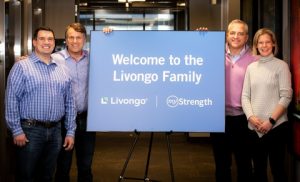When it comes to hiring talent—from engineers and other tech geniuses—there’s no room for anything below topnotch in the healthcare technology, particularly as startups and larger companies like Facebook and Apple are moving fast in innovation. And these behemoths also have deeper pockets and more glamorous perks when it comes to offering top dollar to the right candidate. However, this isn’t necessarily a big hindrance for some of Silicon Valley’s startups, after all, as they hire (and even poach) some top talent.
Glen Tullman, executive chairman of healthcare startup, Livongo, which helps people digitally manage their diabetes, says it’s getting easier for smaller companies to pull in the talent they need. In a recent interview with CNBC, Tullman said that the company, which recently went public, is constantly bringing in tech expertise to its Mountain View, CA headquarters with nearly of third of their hires being software engineers, behavioral scientists, and data scientists. In fact, the company’s head of HR hails from Google and Tesla.
As the company has grown and expanded its reach to patients with other conditions, including hypertension, and it offers a mix of connected devices and behavioral coaching, its getting easier to “poach” top tech talent from Silicon Valley giants—some of which are notorious for their overly generous employee perks. (Think massive salary, stellar health benefits—and free food.)
“We are in the heart of Silicon Valley and interestingly, a lot of people say you’re down the road from Google, how in the world do you recruit?” says Tullman in the interview. “Well the answer is they come to us.”
Stride Health, a startup that helps protect workers in the gig economy (i.e. Uber) with as well as part-time employees with health coverage, health care, and compliance, has also pulled employees from larger tech giants offering high compensation. The company’s CEO Noah Lang says employees are also looking to work for a company with a social mission.
Lang says, “I see a lot of people who are looking specifically at ed-tech and health-tech, because the need a break from advertising models and want to get closer to the problems that real people face.”























